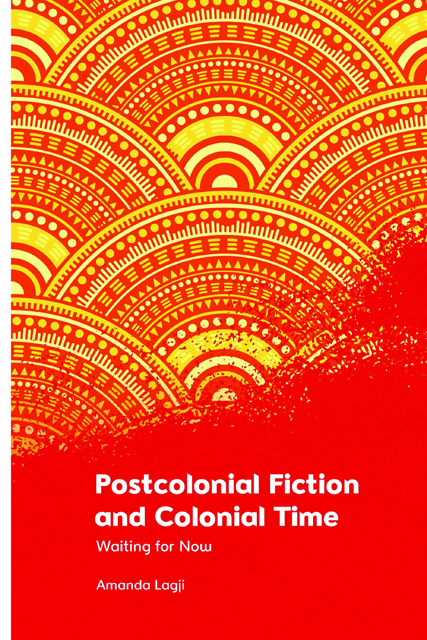Book contents
- Frontmatter
- Contents
- Acknowledgements
- Introduction
- 1 Waiting at the Heart of Colonial Time Regimes
- 2 Projects and Promissory Notes: The Waiting Rooms of V. S. Naipaul and Nadine Gordimer
- 3 Marooned Time: Disruptive Waiting and Idleness
- 4 Gendered Timescapes of Waiting: Patience and Urgency in Novels of Disillusionment
- 5 ‘Strategic Waiting’ and Reconciliation in the Aftermath of Conflict
- Conclusion
- Bibliography
- Index
5 - ‘Strategic Waiting’ and Reconciliation in the Aftermath of Conflict
Published online by Cambridge University Press: 25 April 2023
- Frontmatter
- Contents
- Acknowledgements
- Introduction
- 1 Waiting at the Heart of Colonial Time Regimes
- 2 Projects and Promissory Notes: The Waiting Rooms of V. S. Naipaul and Nadine Gordimer
- 3 Marooned Time: Disruptive Waiting and Idleness
- 4 Gendered Timescapes of Waiting: Patience and Urgency in Novels of Disillusionment
- 5 ‘Strategic Waiting’ and Reconciliation in the Aftermath of Conflict
- Conclusion
- Bibliography
- Index
Summary
do not eat an unripe apple
its bitterness is a tingling knife.
suffer yourself to wait
and the ripeness will come
and the apple will fall down at your feet.
now is the time
pluck the apple
and feed the future with its ripeness.
Njabulo Ndebele, ‘The Revolution of the Aged’ (1981)The speaker in Njabulo Ndebele’s 1981 poem ‘The Revolution of the Aged’ captures the strained atmosphere of the final decade of apartheid in South Africa, bringing to the fore anxieties about timing, agency and activism. Addressing the youth of today, the aged speaker recounts lessons learned over the course of a long life, including, ‘if you cannot master the wind,/ flow with it/ letting know all the time that you are resisting.’ To the young who are ‘hot for quick results’, the speaker explains that he has ‘watched and listened’, and while experiencing ‘humiliation/ i felt the growth of strength in me/ for i had a goal/ as firm as life is endless.’ While the thief and oppressor, the source of his humiliations, has grown old, the speaker still has ‘the weapon of youth’. The final stanza advises the youth on the utility of waiting, which allows the fruit to ripen; at the same time, the speaker urges that the time is ‘now’ to harvest the fruits of waiting.
The poem contains both caution and encouragement; the speaker advises the youth not to be so quick to act, nor so quick to judge the apparent patience of the generations before them. When the speaker counsels, ‘suffer yourself to wait’, the language connotes both pain and endurance in relation to waiting. Though the verb ‘suffer’ is commonly understood in the transitive and passive sense of ‘to have (something painful, distressing, or injurious) inflicted or imposed upon one’, the history of the word’s association with endurance suggests undertones of choice and agency. The word, moreover, contains religious overtones as well, which will be important for this chapter’s later discussion of the Truth and Reconciliation Commission’s investment in redemptive logics of waiting, confession and closure. To suffer can also entail ‘to go or pass through’, or ‘to hold out’, or ‘to allow oneself, submit to be treated in a certain way; to endure, consent to be or to do something.’ Suffering, in this sense, entails endurance and patience.
- Type
- Chapter
- Information
- Postcolonial Fiction and Colonial TimeWaiting for Now, pp. 159 - 198Publisher: Edinburgh University PressPrint publication year: 2022



